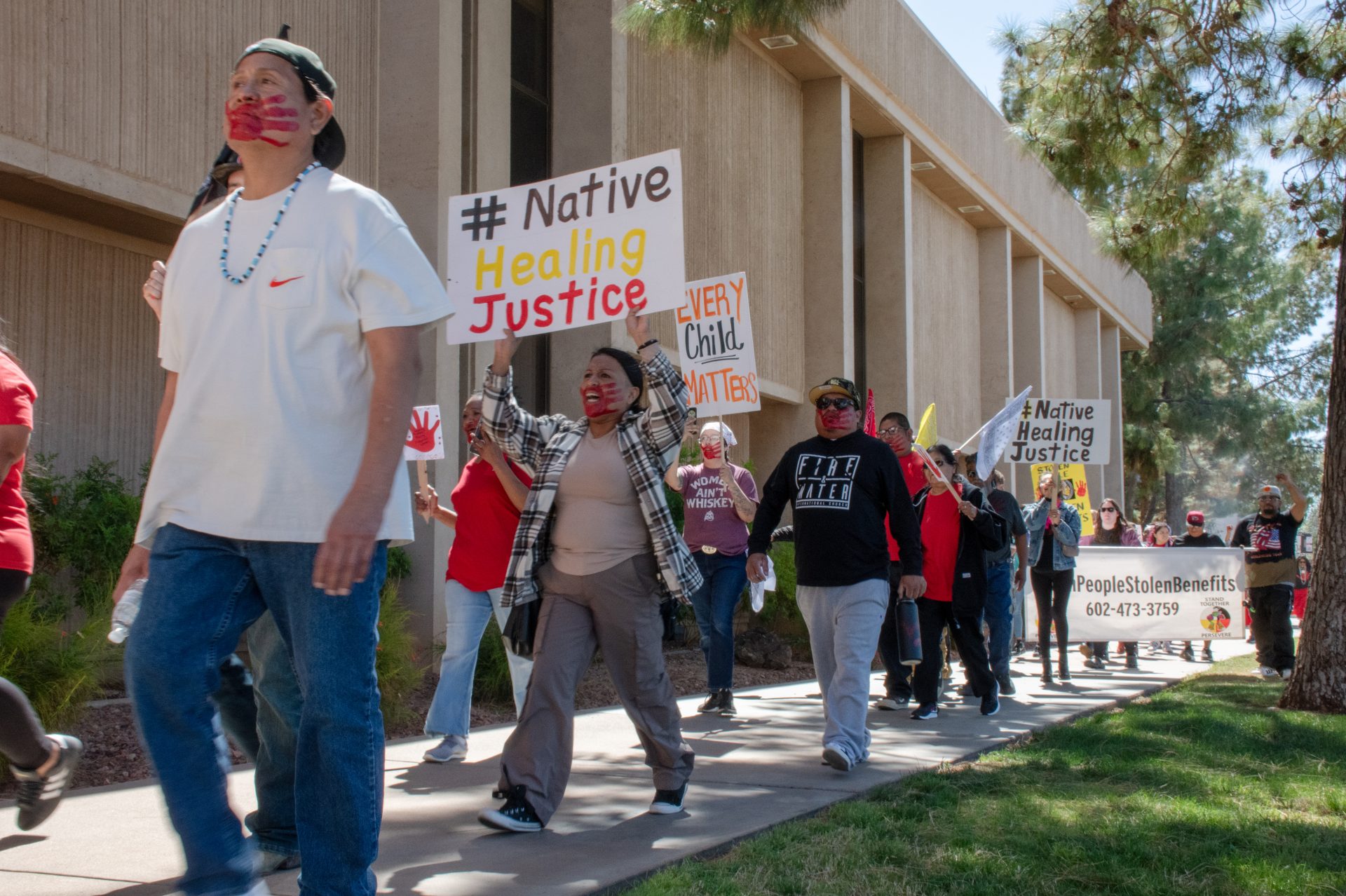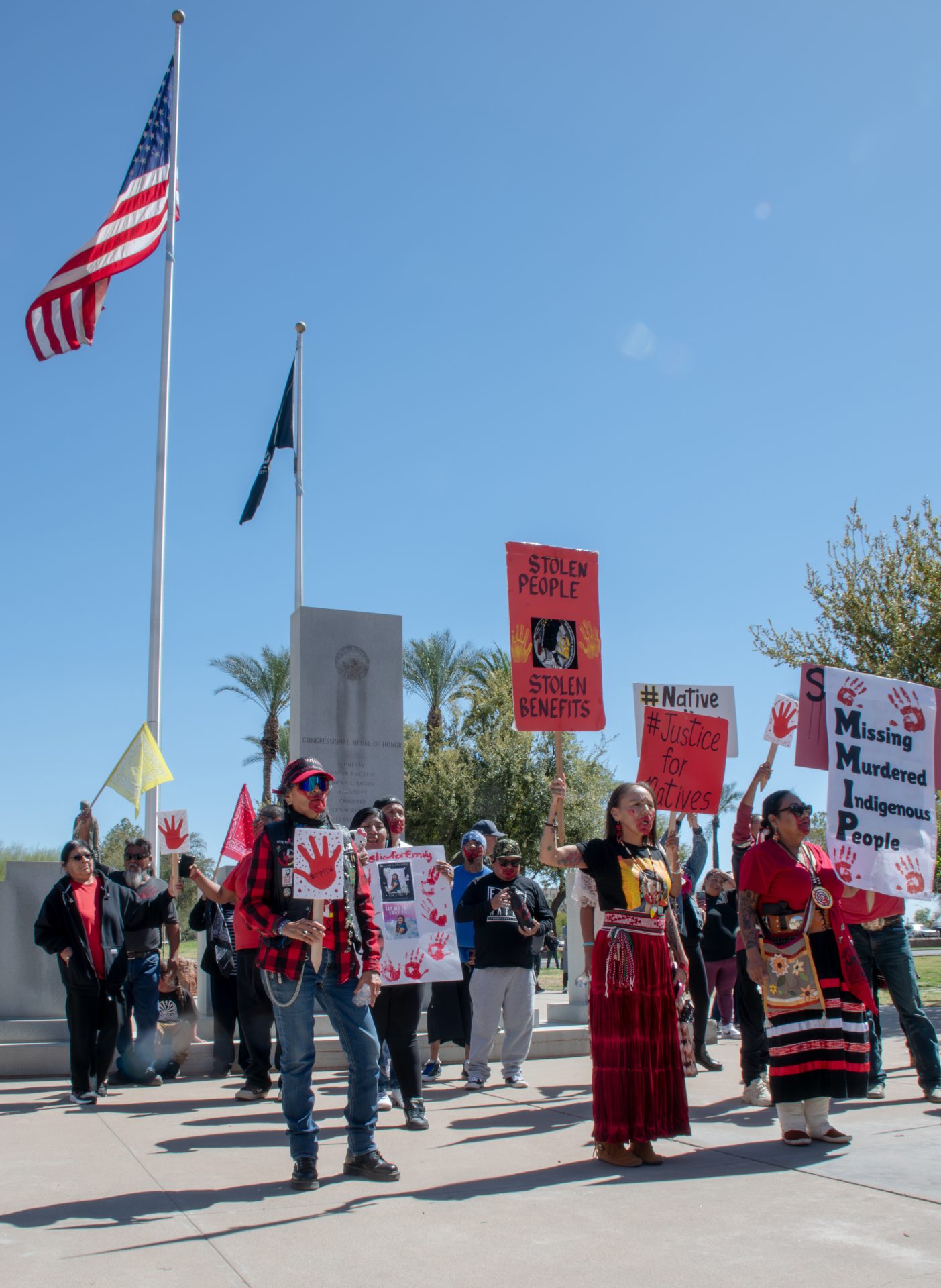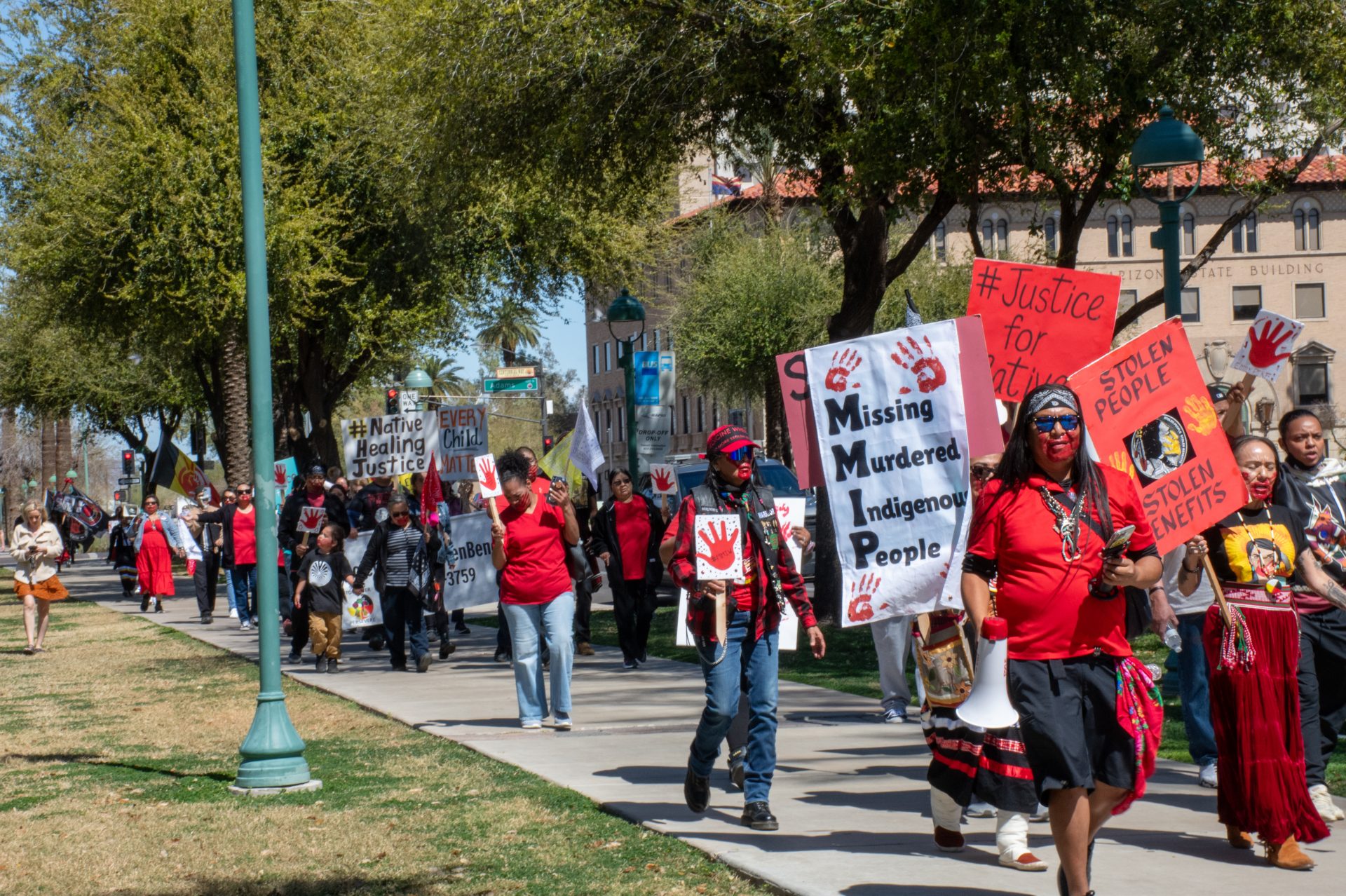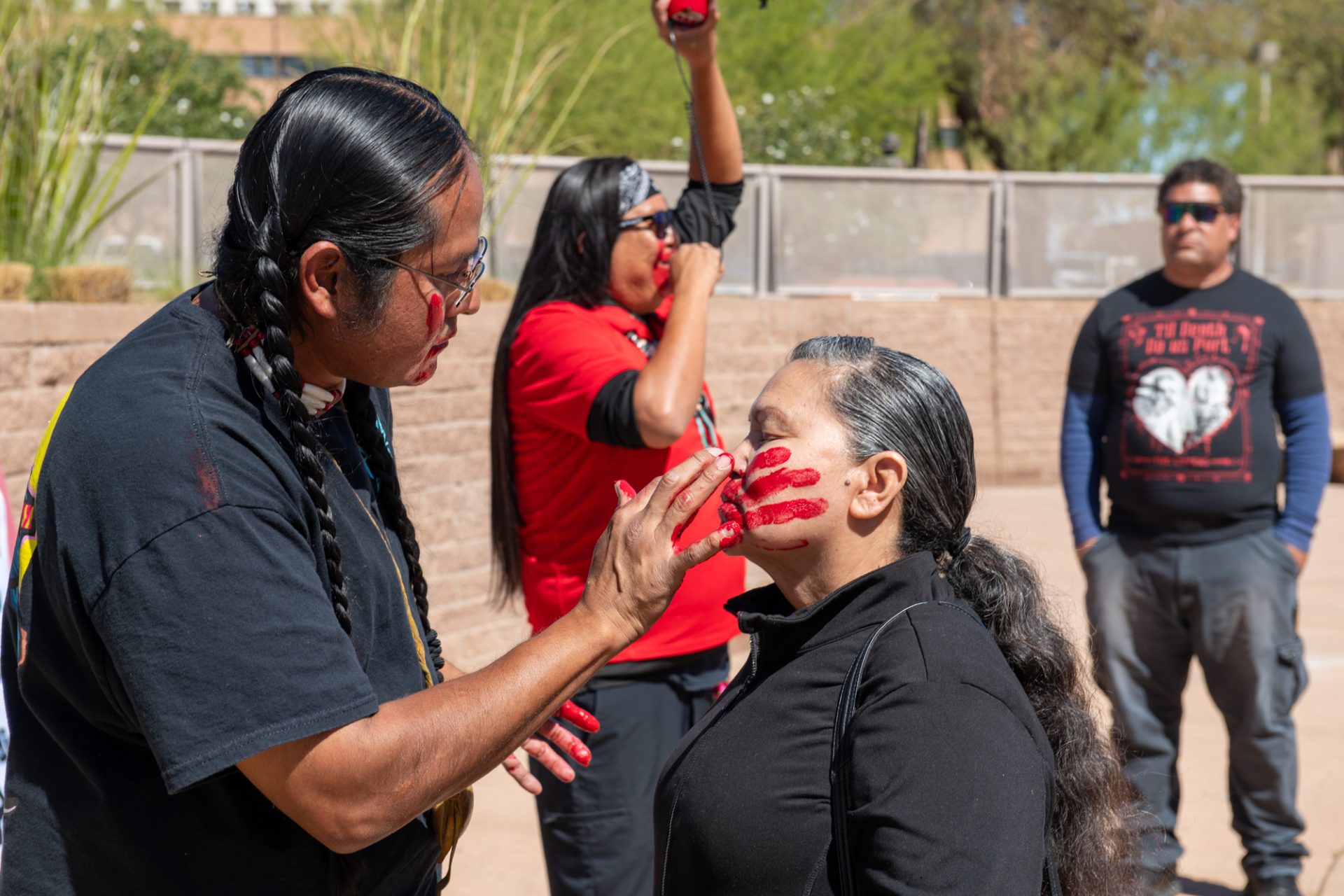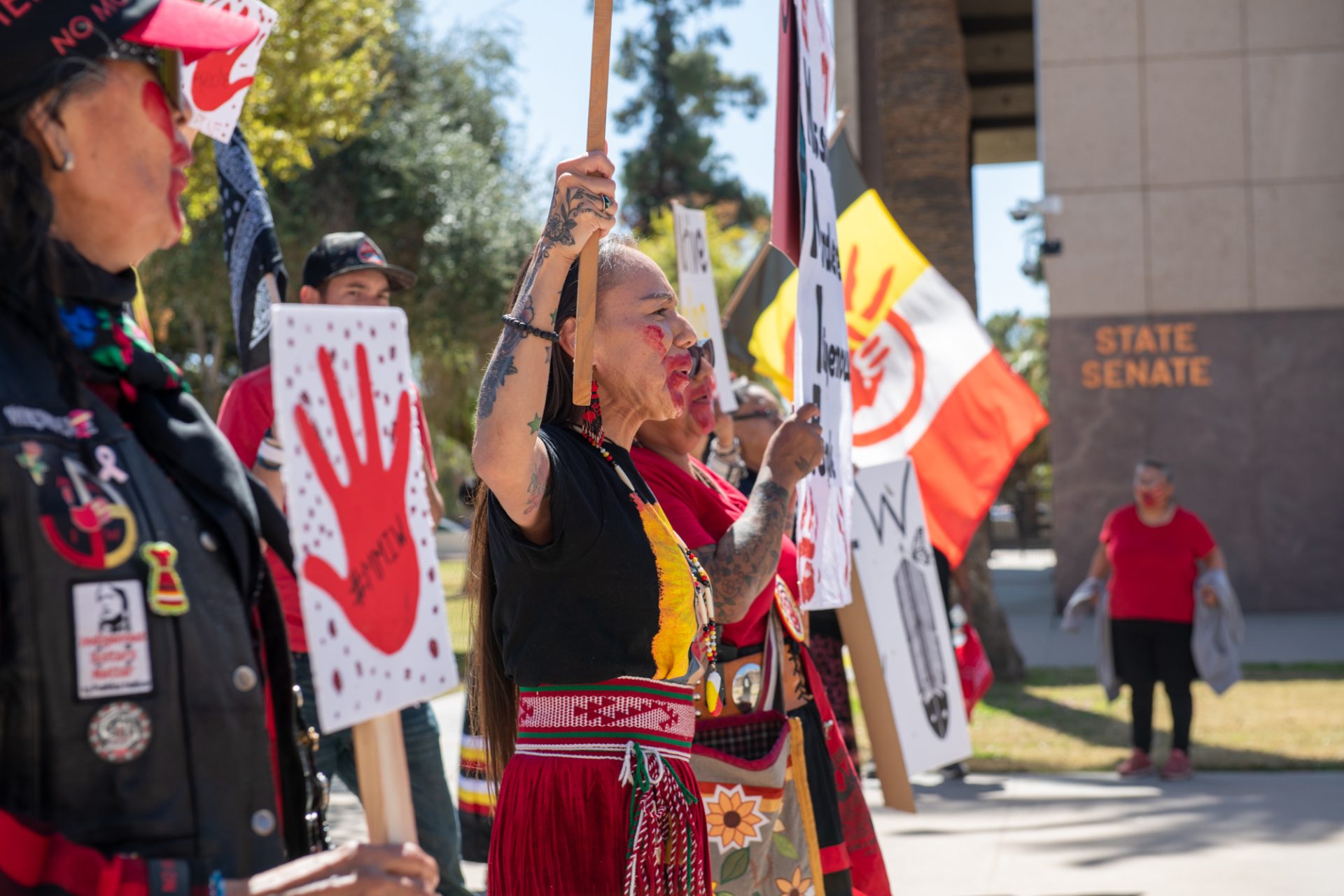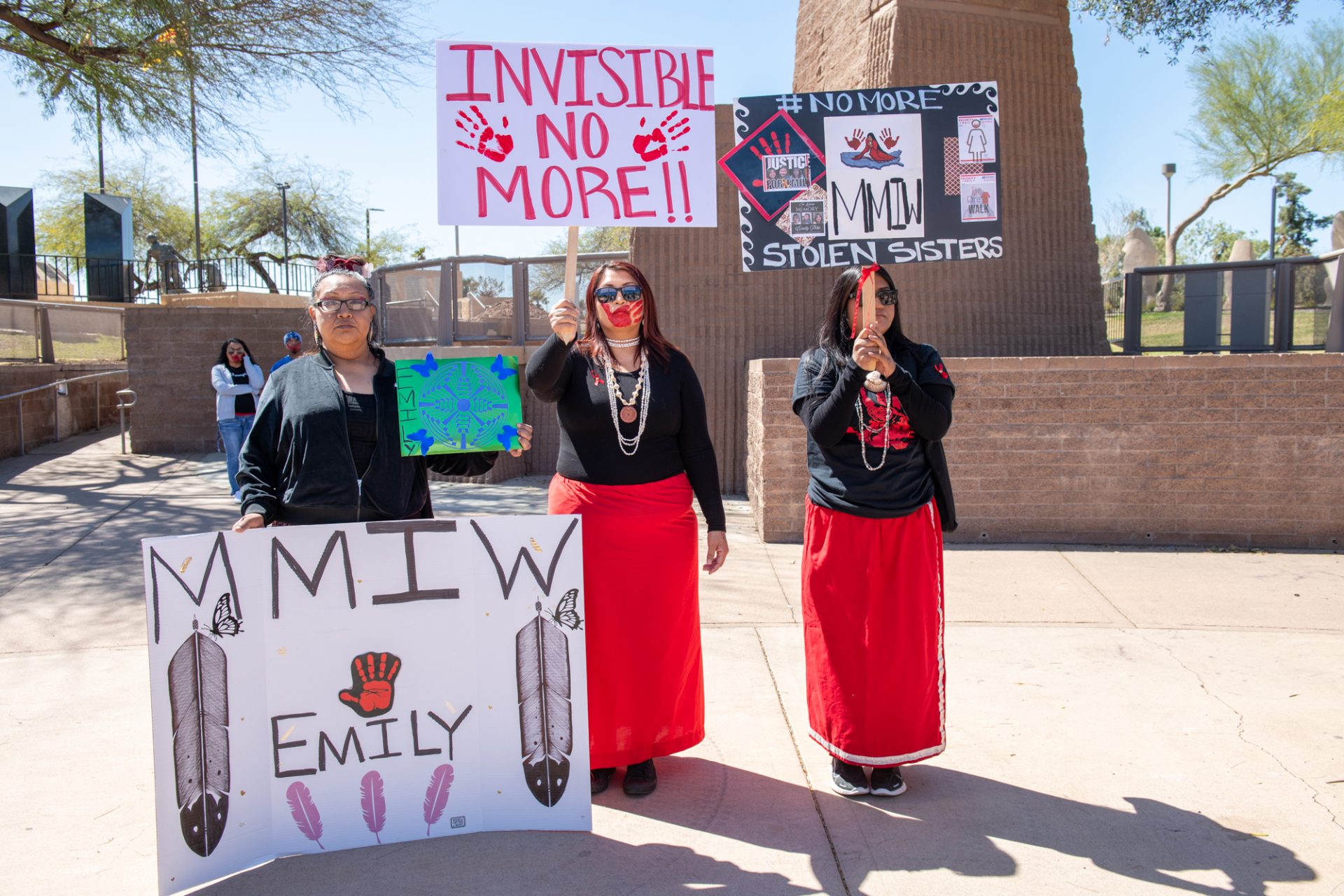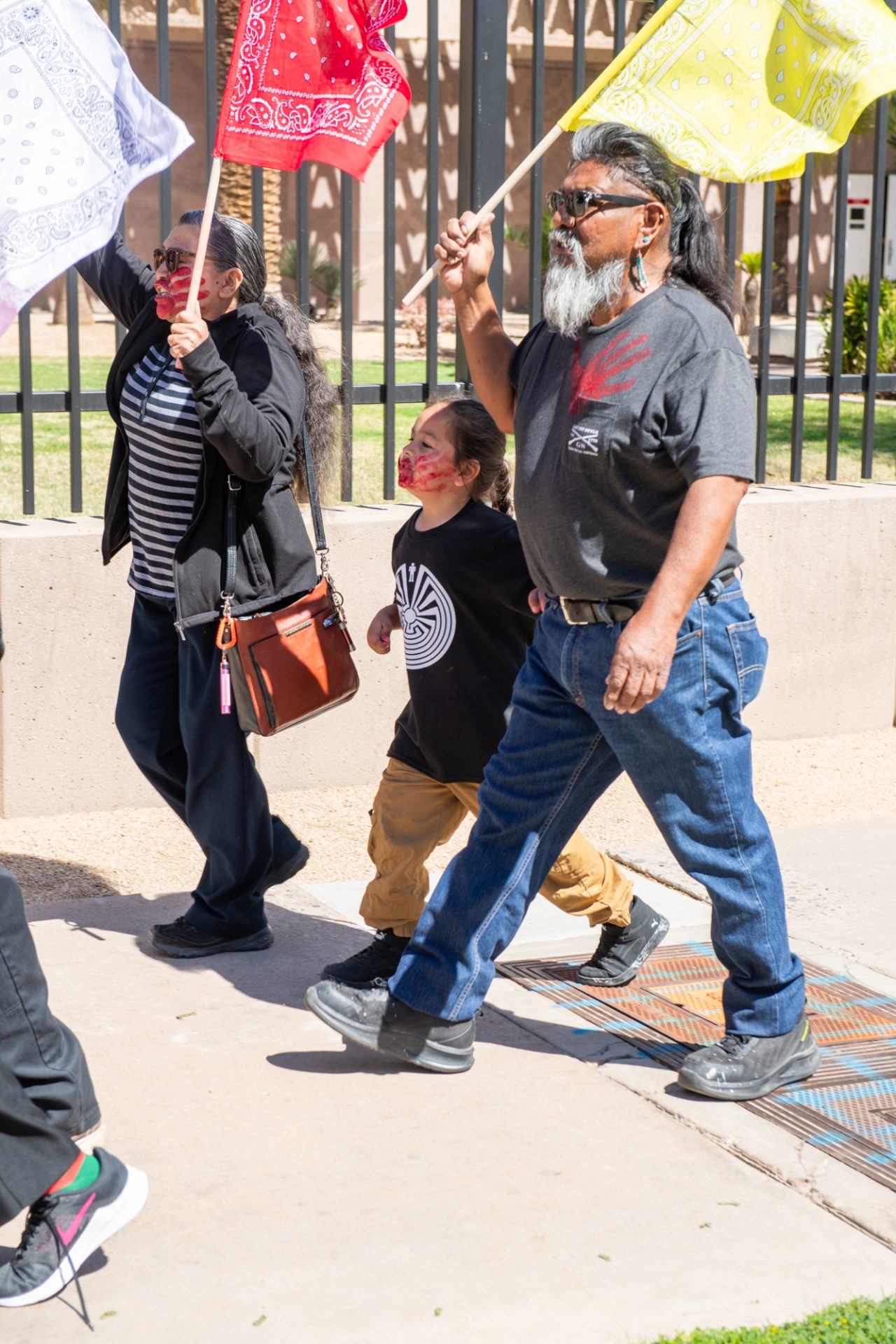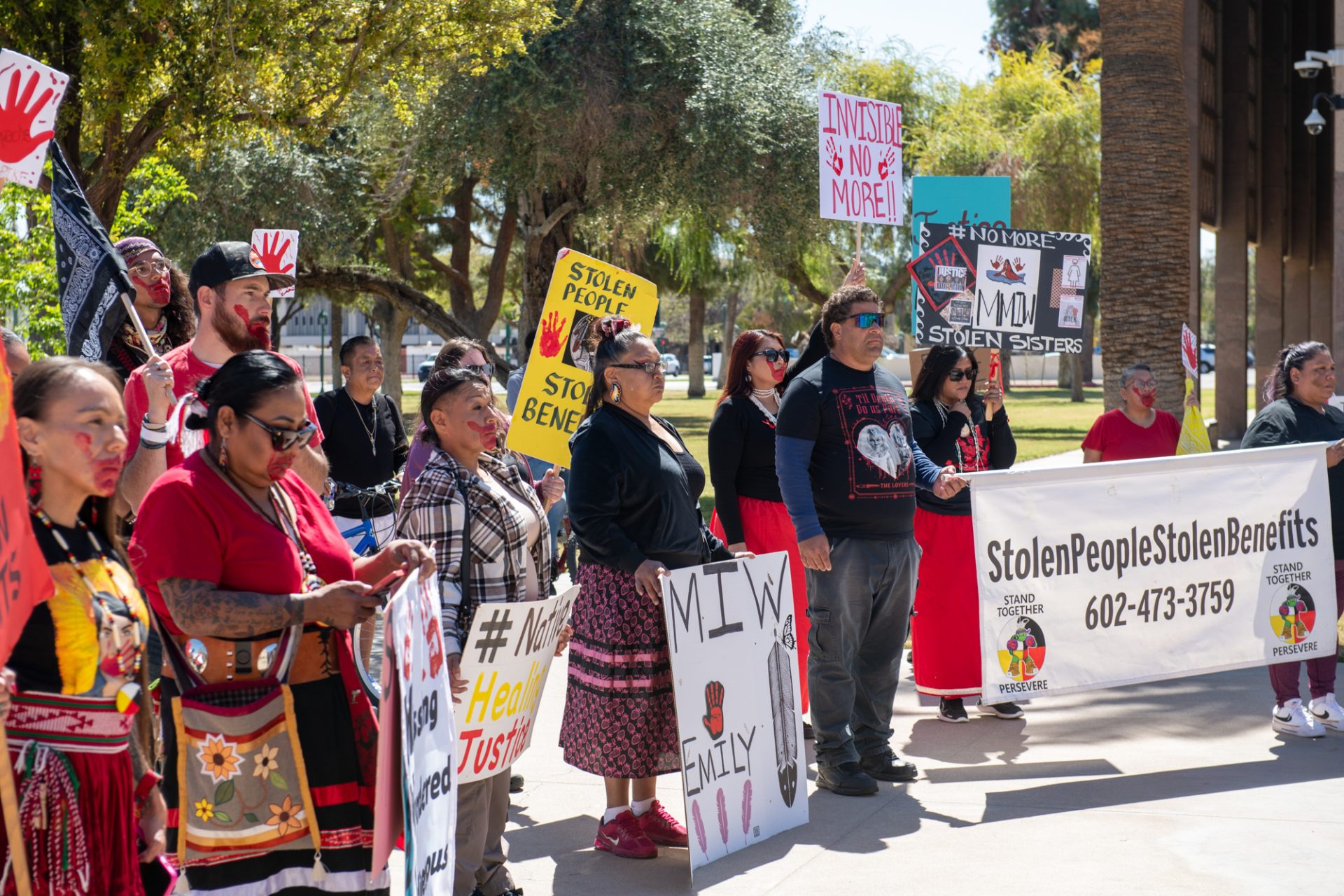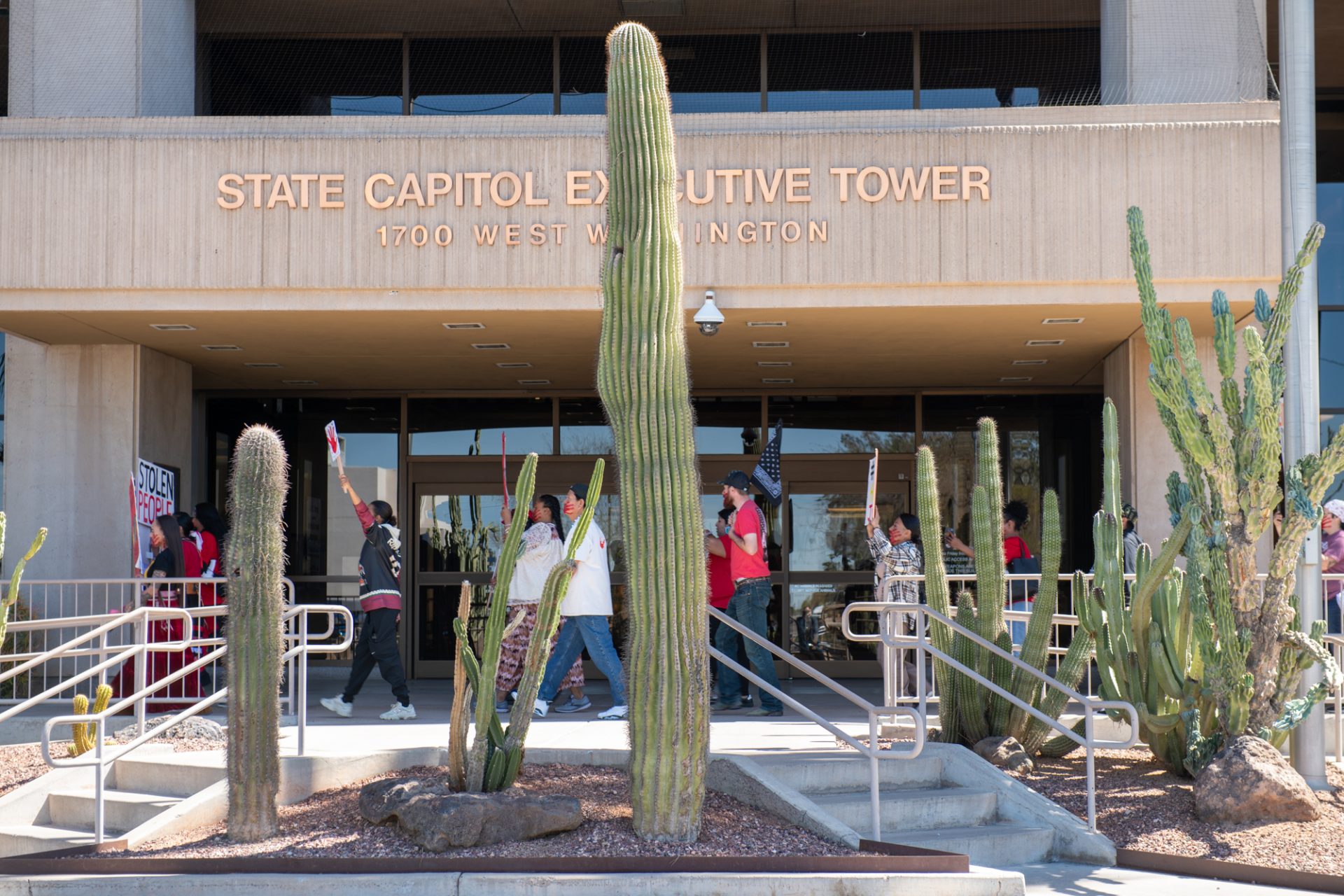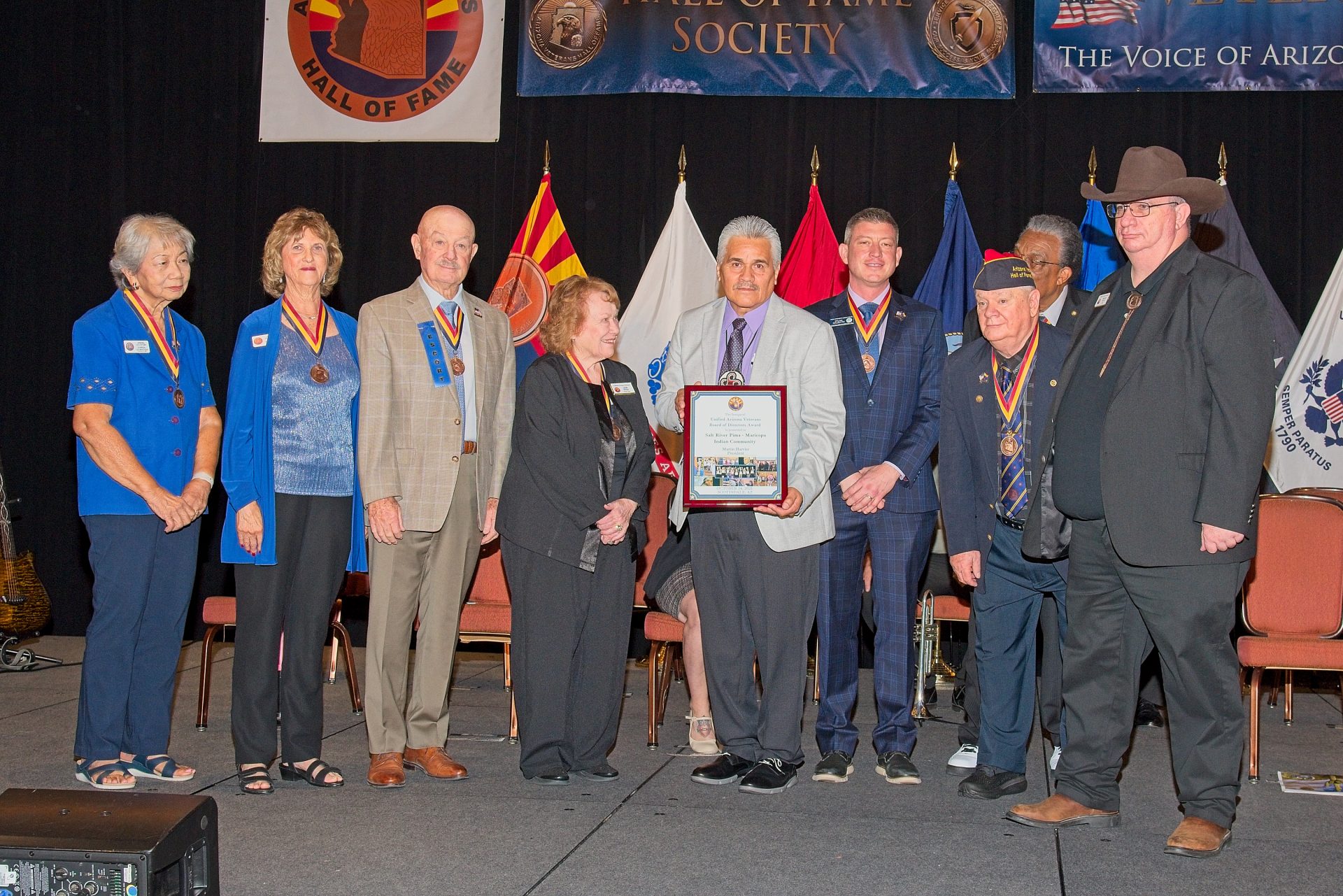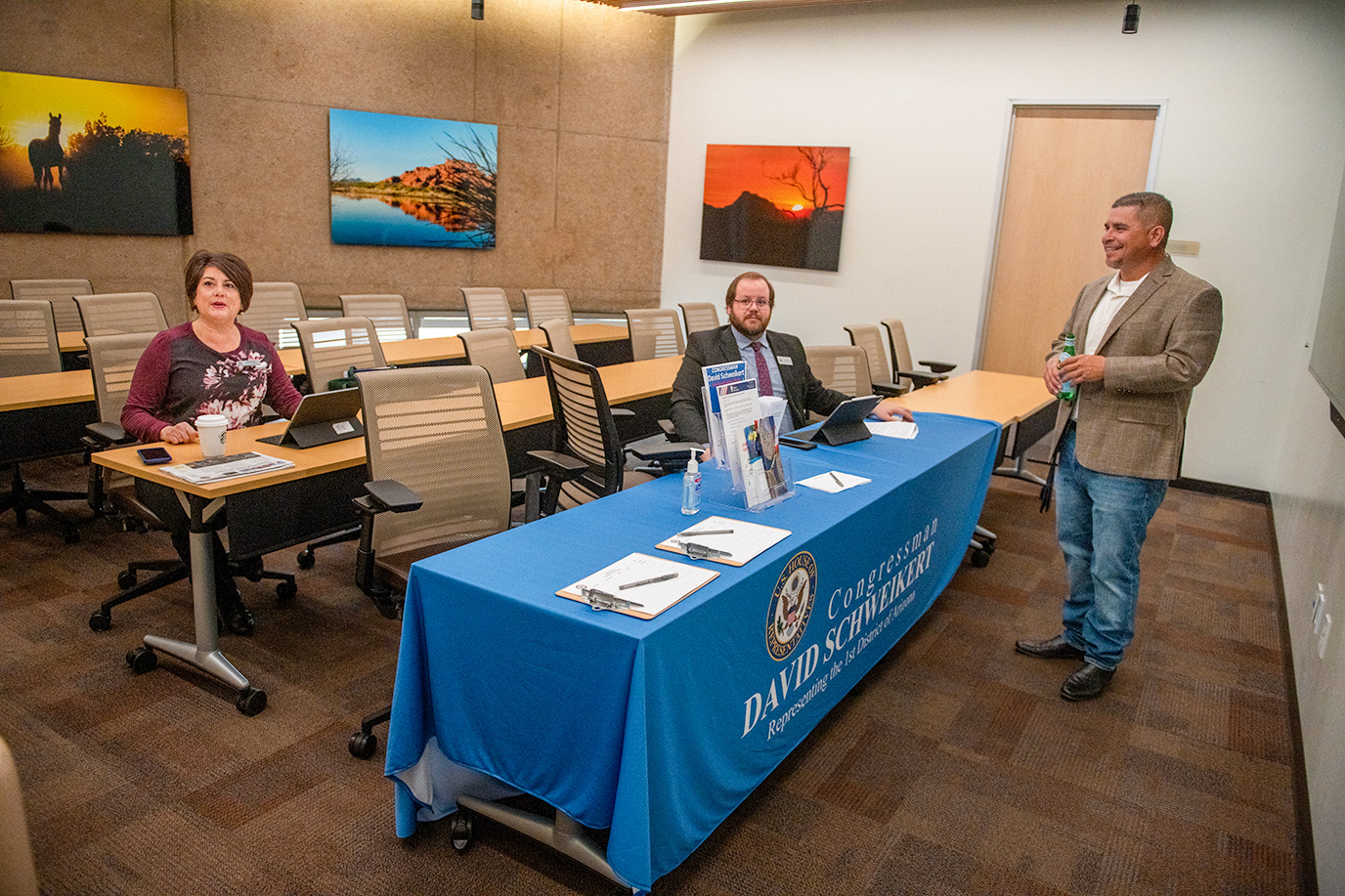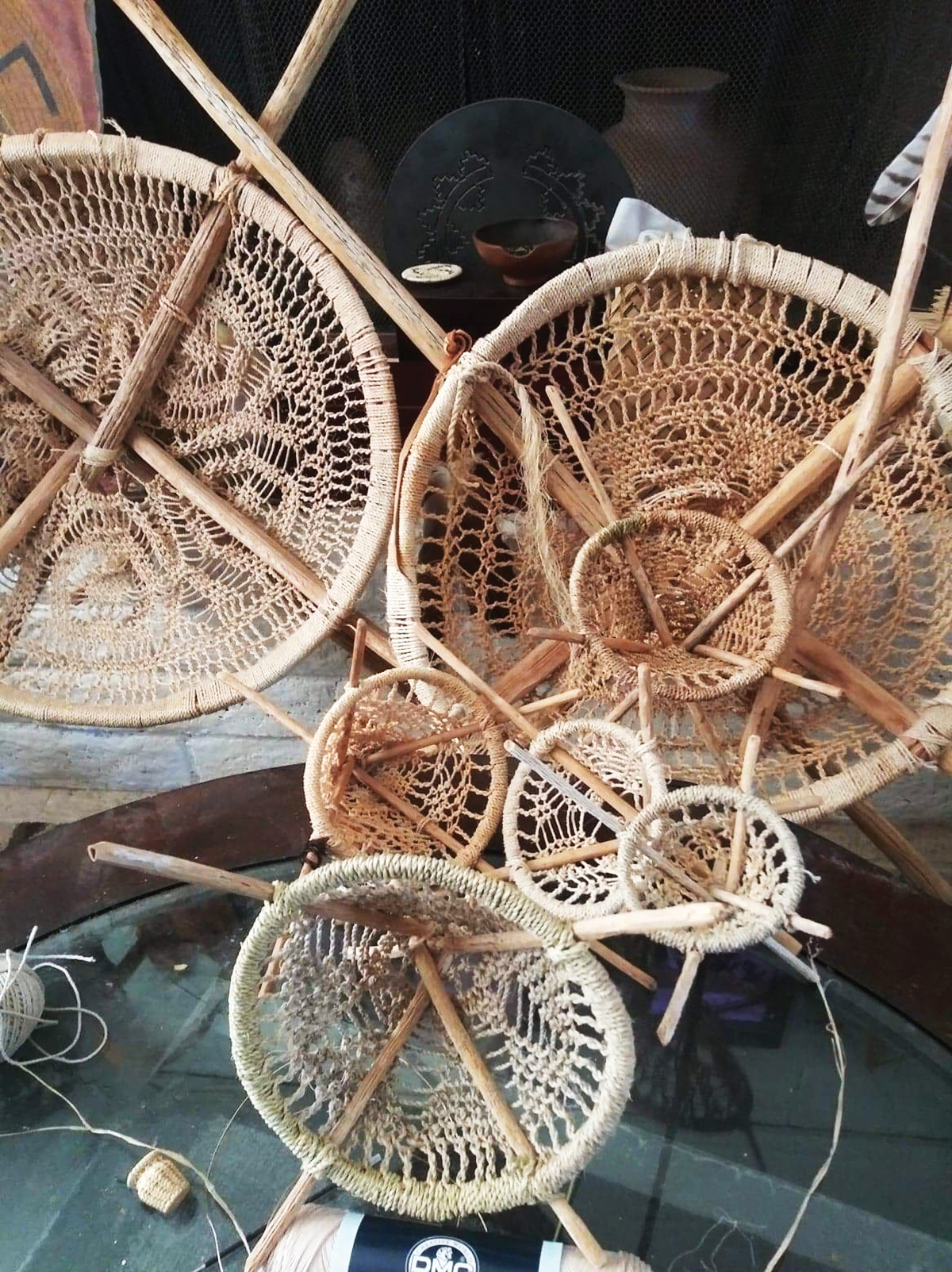VIEWS: 1580
May 6, 2025Arizona Capitol Protests: ‘No more stolen people. No more stolen benefits’
Editor’s Note: This story contains sensitive subject matter that readers may find upsetting.
A grassroots movement is drawing attention to some of the major systemic shortfalls they say enables the cross-generational abuse for Native relatives.
“Stolen People Stolen Benefits” is a movement led in partnership with Turtle Island Women Warriors which started in response to the Sober Living Home crisis. They, along with other supporters, coordinated several days of peaceful protest at the Arizona state Capitol in March to draw attention to how systems meant to help those in need are instead exploited, and how it’s happening across generations.
Every generation faces some form of threat: children placed into abusive group homes, adults seeking help become trapped in fraudulent sober living programs, and elders face cultural erasure in assisted living facilities; all systemic problems that cannot be solved unseen.
A large part of the problem, according to Arizona Attorney General Kris Mayes, is in the “vulnerabilities inherent in the fee-for-service billing model.”
Essentially, these programs leave an open door for fraudulent providers to bill inflated or inaccurate amounts to healthcare programs, regardless of whether any services were even provided. When combined with poorly vetted care facilities, it became a rampant source of fraud in the system and amplified trauma in the people.
The impacts of the Fraudulent Sober Living Home crisis not only affected the individuals and their families but became a part of the greater awareness of missing and murdered Indigenous people as the nightmarish practices removed more and more people from their homes.
It’s possible the same principles are also a factor in what many are perceiving as an extension of the crisis as children are placed into “congregate care” or group homes that are either unequipped or unconcerned with maintaining care of the children. This became a more pronounced part of the conversation after 14-year-old Emily Pike went missing from her group home in Mesa, only to have her partial remains found later.
It only takes one accusation of abuse to uproot an entire family. Once the children enter the system, the barriers to reuniting the family are abundant and can feel impossible to surmount for someone who is already facing the trauma of their family being divided.
At one event on March 18 at the Arizona Capitol grounds, Salt River Pima-Maricopa Indian Community member Christa Miles shared her fears that this is impacting all generations. Her father is in assisted living, and she was horrified to learn that the facility charged with his care held no consideration for his identity and cut his hair without consent, claiming it was becoming too difficult for them to manage.
Miles joined other SRPMIC members, including Sonya Gonzales and Sophia Villalpando, in a fierce and fearless walk around the Arizona Capitol grounds, drawing attention to these issues with a large group of other people holding signs and chanting, “No justice, no peace,” “Justice for Natives” and “No more stolen people. No more stolen benefits.”
“I know a lot of people who were out here looking for help and they didn’t receive that. They ended up getting scammed and thrown into the streets and nobody came and saved them,” Miles said. “That’s what makes me mad. You can go to any bus stop and they’re [Native people in need of help] out here with no ride, no phone, no contacts, no way of getting back home.”
Miles also said that it shouldn’t have taken the Native American community to lose Pike for this issue to pick up steam.
“It could be your own daughter. It could be your own niece. Your sister. Your mom. It could be anybody. It’s not fair what happened to [Emily],” Miles said. Fighting back tears, Miles recalls a message she tells her own kids.
“If I ever go missing, just know that I’m missing,” she said. “I would never just walk away from my family. I tell my kids, if that ever comes, I hope they look for me.”
Villalpando is no stranger to the #MMIW cause. She is an organizer for the yearly Red Dress Walk in the SRPMIC. The idea for the Red Dress Walk was sparked during a class discussion in 2019 when she was a student. Now, she looks forward to the walk being in the Community three to four times a year. Being at the Capitol walk among Community members was especially important to her.
“I’m just trying to get the word out there and be supportive,” she said.
For Gonzales, it’s personal. She said that her boyfriend went missing from a treatment home some time ago.
“We’re here because we’re also hurting,” said Gonzales, who is showing her support for Pike, her family and the San Carlos Apache Tribe. “When we found out that Emily was taken from Mesa, so close to our reservation at Salt River, our children go to school in Mesa. We felt very attacked. We felt it close to home. It could have been any of our children.”
Gonzales said that she isn’t going to stop showing up and speaking up until there is justice for her people.
“We want some accountability,” she said.
This article has been updated for clarity.
